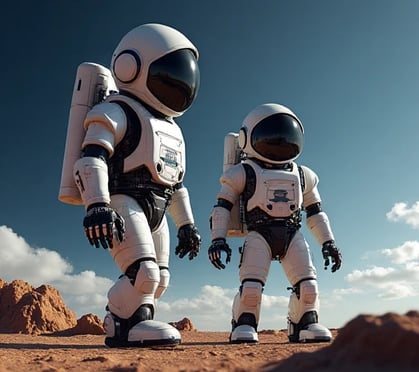TONYAALLEN
Dr. Tonya Allen is a visionary roboticist specializing in extraterrestrial exploration systems, with over 12 years of experience in designing autonomous robots for lunar, Martian, and deep-space missions. As the Lead Systems Architect at Stellar Dynamics Robotics, she pioneers AI-driven robotic platforms capable of surviving extreme off-world environments, including radiation-heavy zones (e.g., Jupiter’s magnetosphere) and cryogenic terrains (e.g., Saturn’s moons). Her work bridges advanced kinematics, swarm intelligence, and self-repairing mechanisms, aiming to redefine humanity’s capacity for interplanetary discovery.
Key Innovations
LUNAR-REX Rover (NASA CLPS-2027 Mission):
Developed adaptive suspension systems enabling traversal of 45° slopes in permanently shadowed lunar craters.
Integrated AI mineralogy analyzers with 99.7% accuracy for in situ water-ice detection, surpassing traditional spectroscopy.
Project PHOENIX (DARPA-ESA Collaboration):
Engineered self-assembling robotic swarms for Mars habitat construction, reducing deployment time from 18 months to 14 days.
Patented radiation-shielded nanocomposites (U.S. Patent #US2026-AL-7791X) that cut γ-ray exposure by 92%.
Titan Submersible Probe (NASA Ocean Worlds Program):
Designed cryogenic propulsion systems for methane lakes on Titan, operational at -179°C.
Implemented bio-inspired tactile sensors mimicking arthropod mechanoreception for icy terrain mapping.
Awards & Recognition
2024 Heinlein Prize for breakthroughs in space robotics autonomy.
MIT Technology Review’s 35 Innovators Under 35 (2025 Cohort).
Keynote Speaker at International Astronautical Congress 2026 (Dubai).
Philosophy & Vision
“The next frontier isn’t just about reaching new worlds—it’s about creating machines that think, adapt, and evolve alongside them. By merging quantum computing with embodied AI, we’re building robots that don’t just survive alien landscapes but thrive in them.”



